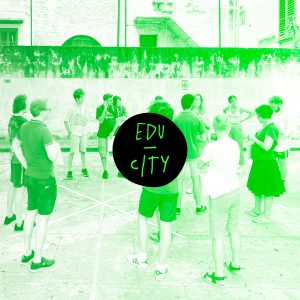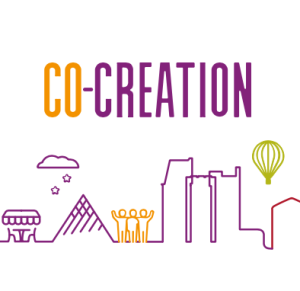
English below
Conferenza online
Sabato 31 Ottobre 2020, h.17
La prima policy conference della serie promessa dal progetto UIA UPPER si interessa allo spazio della partecipazione. Gerarchie di ruoli e posizioni di potere consolidate sono scolpiti più rigidamente di quanto pensiamo nella dimensione spaziale. La rinnovata attenzione alla coproduzione di visioni e soluzioni per la trasformazione urbana richiede un coinvolgimento attivo dei cittadini ma spesso si scontra con la mancanza di spazi appropriati. Una carenza che rivela la difficoltà di gestire esperienze di innovazione sociale nella cornice di strutture e spazi pubblici tradizionali. C’è una sentita richiesta di nuove forme di spazi comunitari aperti e flessibili, che consentano uno scambio simmetrico e orizzontale tra cittadini e istituzioni, e lo sviluppo di capacità e iniziative dal basso. In questo contesto emergono nuovi modelli di centri civici aperti alla co-progettazione di servizi e soluzioni. Tali strutture non vanno intese semplicemente come contenitori, come spazi circoscritti e dedicati, ma piuttosto come catalizzatori, come laboratori aperti, cabine di pilotaggio per la cura e la trasformazione dei territori che li contengono. Durante l’evento congiunto organizzato dai progetti Officine di Città e UPPER vogliamo discutere queste nuove forme di laboratori urbani nella loro relazione con l’intorno, in particolare con lo spazio pubblico e il verde. Approfittando della congiuntura tra due progetti di futuro impatto per Latina, la creazione di cinque “officine per la città” e la coproduzione di dieci aree del territorio urbano con soluzioni basate sulla natura implementate attraverso il programma Urban Innovative Action, la conferenza presenterà alcune esperienze significative realizzate in Italia e discuterà l’applicazione di nuove idee nel contesto di Latina.
Abbiamo invitato alcune realtà che si stanno occupando di pensare e realizzare nuovi spazi della partecipazione in Italia ed in Europa ad avere una conversazione pubblica, a partire da quattro domande essenziali:
- quale ruolo per le politiche pubbliche e le amministrazioni locali nel cogliere richieste e iniziative che provengono dai territori riguardo agli spazi civici?
- Come usare i nuovi laboratori urbani come catalizzatori di rivendicazione e produzione di beni comuni?
- Come rimettere la natura e la sostenibilità ambientale al centro dei processi di sviluppo e rigenerazione urbana?
- Come coinvolgere la cittadinanza – soprattutto quelle fasce che normalmente sono escluse perché mancano delle condizioni primarie per potersi permettere la partecipazione – nella co-progettazione di spazi pubblici e beni comuni?
Programma della conferenza
| 17:00 | Intorni: introduzione e obbiettivi – Lorenzo Tripodi, Tesserae |
| 17:10 | Quali spazi urbani per la partecipazione? – Laura Colini, Tesserae / UIA |
| 17:25 | I nuovi centri culturali in Italia, una mappa – Marilù Manta, Che Fare |
| 17:40 | Lo strumento dei Patti di Collaborazione – Pasquale Bonasora, Labsus |
| 17:55 | Discussione e domande |
| 18:20 | Bambini, autonomia e spazio pubblico – Annalisa Pecoriello, Ass. La Città Bambina |
| 18:35 | Le case del quartiere di Torino – Roberta Molinar, Fondazione Mirafiori |
| 18:50 | Officine di Città: un processo di co-progettazione per la definizione delle prime 5 case del quartiere del territorio – Elena Donaggio, Sara Le Xuan, Avanzi |
| 19:05 | Domande e discussione finale |
Per registrarsi vai al form sul sito UPPER
Online conference
Saturday 31 October 2020, h.17
The first policy conference of the series promised by the UIA UPPER project is interested in the space of participation. Established roles and hierarchies of power are carved more rigidly than we think in the spatial dimension. The renewed attention to the co-production of visions and solutions for urban transformation requires an active involvement of citizens but often clashes with the lack of appropriate spaces. A lack that reveals the difficulty of managing experiences of social innovation within the framework of traditional public structures and spaces. There is a strong demand for new forms of open and flexible community spaces, allowing a symmetrical and horizontal exchange between citizens and institutions, and the development of capacities and initiatives from below. In this context new models of civic centres open to co-designing services and solutions emerge. These structures should not be understood simply as containers, as limited and dedicated spaces, but rather as catalysts, as open laboratories, cockpits for the care and transformation of the territories that contain them. During the joint event organised by the Officine di Città and UPPER projects we want to discuss these new forms of urban workshops in their relationship with their surroundings, in particular with public space and greenery. Taking advantage of the juncture between two projects of future impact for Latina – the creation of five “workshops for the city” and the co-production of ten areas of the urban territory with nature-based solutions implemented through the Urban Innovative Action programme – the conference will present some significant experiences in Italy and discuss the application of new ideas in the context of Latina.
We have invited some realities that are dealing with thinking and creating new spaces of participation in Italy and Europe to have a public conversation, starting from four essential questions:
- what role for public policies and local administrations in grasping requests and initiatives coming from the territories regarding civic spaces?
- How to use the new urban labs as catalysts for claiming and producing common goods?
- How to put nature and environmental sustainability back at the centre of urban development and regeneration processes?
- How to involve citizens – especially those that are normally excluded because they lack the primary conditions to be able to participate – in the co-design of public spaces and common goods?
Conference programme
| 17:00 | Intorni: introduction and objectives – Lorenzo Tripodi, Tesserae |
| 17:10 | What urban spaces for participation? – Laura Colini, Tesserae / UIA |
| 17:25 | The new cultural centres in Italy, a map – Marilù Manta, Che Fare |
| 17:40 | The instrument of the Collaboration Pacts – Pasquale Bonasora, Labsus |
| 17:55 | Discussion and questions |
| 18:20 | Children, autonomy and public space – Annalisa Pecoriello, Ass. La Città Bambina |
| 18:35 | The “neighbourhood houses” of Turin – Roberta Molinar, Fondazione Mirafiori |
| 18:50 | Officine di Città: un processo di co-progettazione per la definizione delle prime 5 case del quartiere del territorio – Elena Donaggio, Sara Le Xuan, Avanzi |
| 19:05 | Questions and final discussion |
To register go to the form on the UPPER website
(The conference will be in Italian!)
Download Intorni Programma completo


